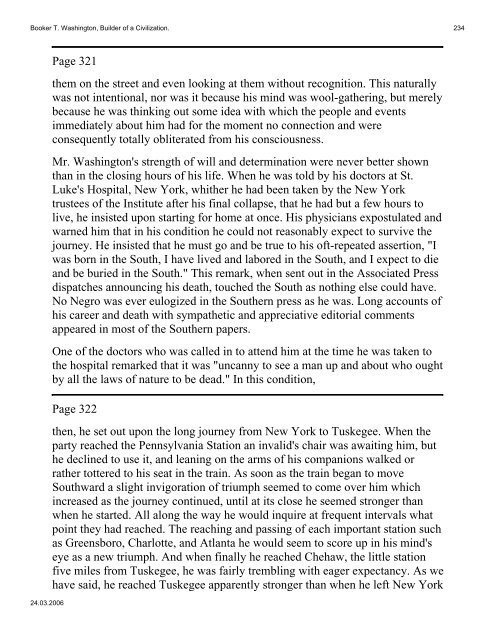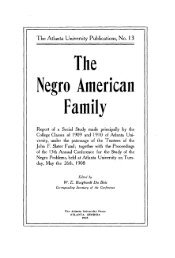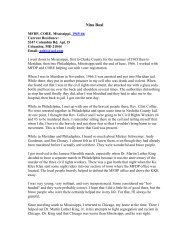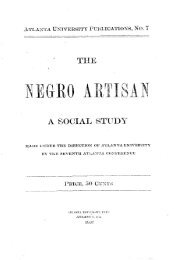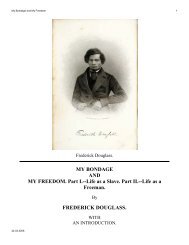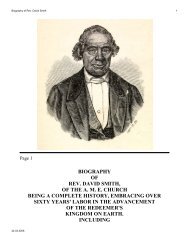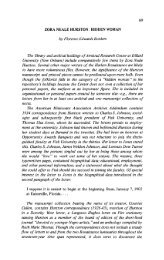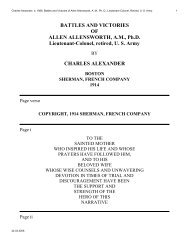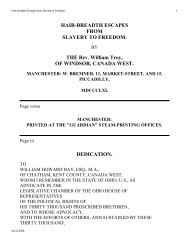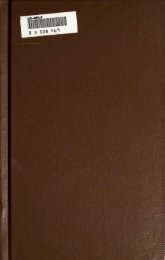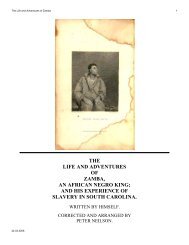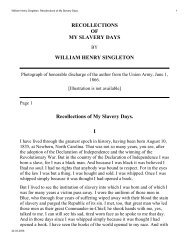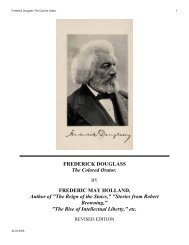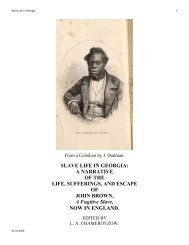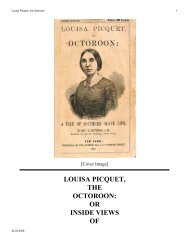Booker T. Washington, Builder o - African American History
Booker T. Washington, Builder o - African American History
Booker T. Washington, Builder o - African American History
You also want an ePaper? Increase the reach of your titles
YUMPU automatically turns print PDFs into web optimized ePapers that Google loves.
<strong>Booker</strong> T. <strong>Washington</strong>, <strong>Builder</strong> of a Civilization. 234<br />
24.03.2006<br />
Page 321<br />
them on the street and even looking at them without recognition. This naturally<br />
was not intentional, nor was it because his mind was wool-gathering, but merely<br />
because he was thinking out some idea with which the people and events<br />
immediately about him had for the moment no connection and were<br />
consequently totally obliterated from his consciousness.<br />
Mr. <strong>Washington</strong>'s strength of will and determination were never better shown<br />
than in the closing hours of his life. When he was told by his doctors at St.<br />
Luke's Hospital, New York, whither he had been taken by the New York<br />
trustees of the Institute after his final collapse, that he had but a few hours to<br />
live, he insisted upon starting for home at once. His physicians expostulated and<br />
warned him that in his condition he could not reasonably expect to survive the<br />
journey. He insisted that he must go and be true to his oft-repeated assertion, "I<br />
was born in the South, I have lived and labored in the South, and I expect to die<br />
and be buried in the South." This remark, when sent out in the Associated Press<br />
dispatches announcing his death, touched the South as nothing else could have.<br />
No Negro was ever eulogized in the Southern press as he was. Long accounts of<br />
his career and death with sympathetic and appreciative editorial comments<br />
appeared in most of the Southern papers.<br />
One of the doctors who was called in to attend him at the time he was taken to<br />
the hospital remarked that it was "uncanny to see a man up and about who ought<br />
by all the laws of nature to be dead." In this condition,<br />
Page 322<br />
then, he set out upon the long journey from New York to Tuskegee. When the<br />
party reached the Pennsylvania Station an invalid's chair was awaiting him, but<br />
he declined to use it, and leaning on the arms of his companions walked or<br />
rather tottered to his seat in the train. As soon as the train began to move<br />
Southward a slight invigoration of triumph seemed to come over him which<br />
increased as the journey continued, until at its close he seemed stronger than<br />
when he started. All along the way he would inquire at frequent intervals what<br />
point they had reached. The reaching and passing of each important station such<br />
as Greensboro, Charlotte, and Atlanta he would seem to score up in his mind's<br />
eye as a new triumph. And when finally he reached Chehaw, the little station<br />
five miles from Tuskegee, he was fairly trembling with eager expectancy. As we<br />
have said, he reached Tuskegee apparently stronger than when he left New York


